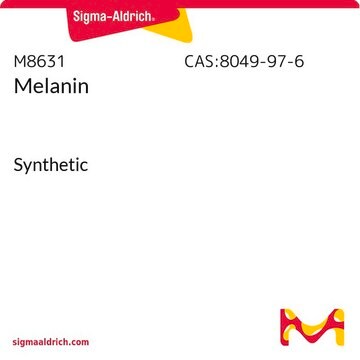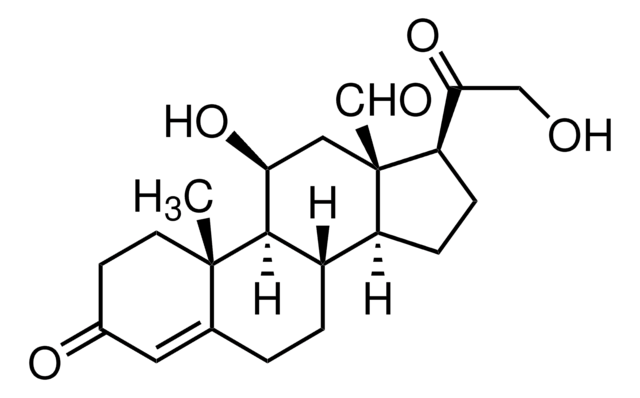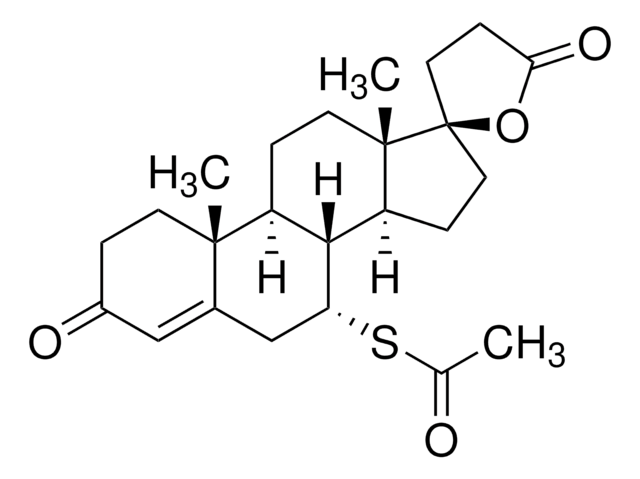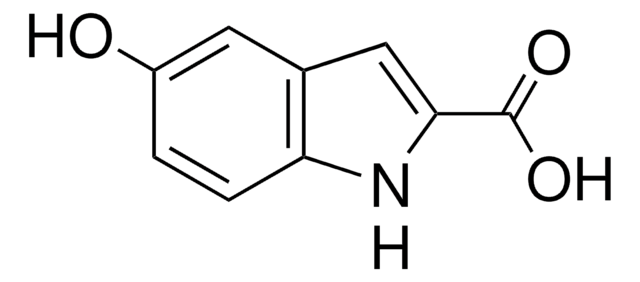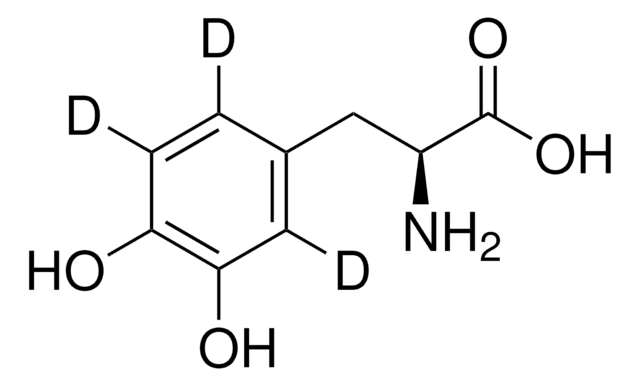M0418
Melanin
BioReagent, Synthetic, suitable for cell culture
About This Item
Recommended Products
biological source
synthetic
product line
BioReagent
Assay
≥97% (TLC)
form
powder
technique(s)
cell culture | mammalian: suitable
solubility
1 N NH4OH: 20 mg/mL
storage temp.
−20°C
InChI
1S/C18H10N2O4/c1-5-13-9-7(3-19-13)12-10-8(11(9)17(23)15(5)21)4-20-14(10)6(2)16(22)18(12)24/h3-4,19-20H,1-2H3
InChI key
XUMBMVFBXHLACL-UHFFFAOYSA-N
Looking for similar products? Visit Product Comparison Guide
General description
Application
- to incubate normal human keratinocytes for Masson-Fontana staining
- as a standard in the determination of melanin content in normal human epidermal melanocytes and immortalized human keratinocytes
- as an absorber to mimic human skin or melanocytic nevi and melanoma
Biochem/physiol Actions
Preparation Note
Storage Class Code
11 - Combustible Solids
WGK
WGK 1
Flash Point(F)
Not applicable
Flash Point(C)
Not applicable
Personal Protective Equipment
Regulatory Listings
Regulatory Listings are mainly provided for chemical products. Only limited information can be provided here for non-chemical products. No entry means none of the components are listed. It is the user’s obligation to ensure the safe and legal use of the product.
JAN Code
M0418-250MG:
M0418-VAR:
M0418-100MG:
M0418-5G:
M0418-1G:
M0418-BULK:
Certificates of Analysis (COA)
Search for Certificates of Analysis (COA) by entering the products Lot/Batch Number. Lot and Batch Numbers can be found on a product’s label following the words ‘Lot’ or ‘Batch’.
Already Own This Product?
Find documentation for the products that you have recently purchased in the Document Library.
Customers Also Viewed
Our team of scientists has experience in all areas of research including Life Science, Material Science, Chemical Synthesis, Chromatography, Analytical and many others.
Contact Technical Service